Brodka juggles different styles of music, daring sound and aesthetics with amazing grace. Her alternative sources of inspiration go far beyond the world of sound to encompass varied areas of broadly understood culture and contemporary art. The fact that Brodka collects young art bears further testimony to the significance of this intersection. Currently the artist – who debuted on the TV talent show “Idol” – has been working on her (already!) fifth album ever since. New singles will be released in spring 2021. Before its premiere, we invite you to read my recent interview with Brodka in which we discuss the connections between music and visual arts, her inspirations, collection and what sort of works does she look forward to seeing the most as a jury member of the Allegro Prize Competition.
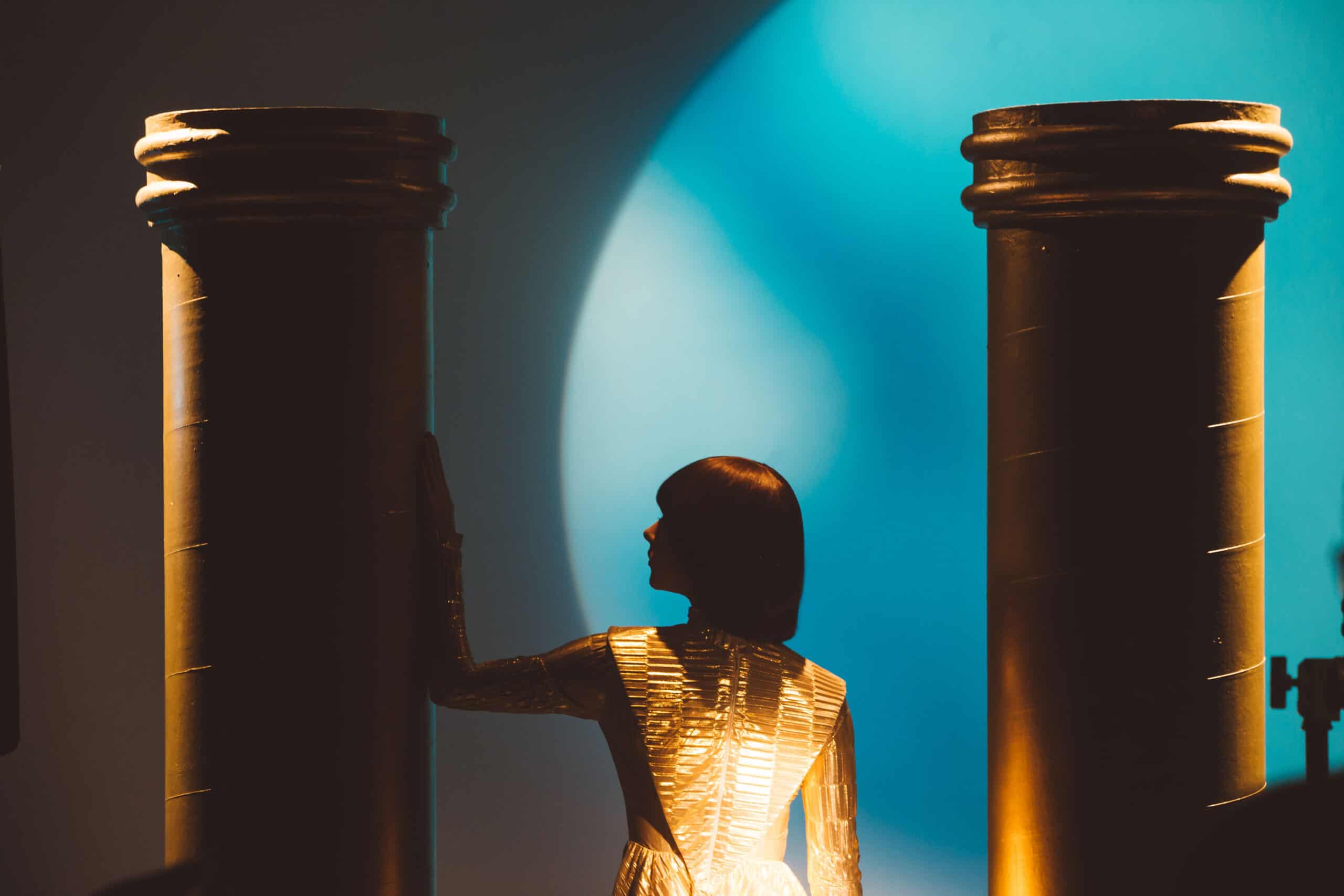
Brodka, photo: M. Murawski, Red Bull Content Pool, 18.11.2016
Dobromiła Błaszczyk: A plethora of relations between contemporary art and music runs way back – Vasily Kandinsky described this connection in the early 20th century, trying to demonstrate a close association of rhythm, harmony, tonal quality and emotions…what sort of connection do you see between these two art disciplines?
Brodka: Correlation between contemporary art and music has an immense power, its portions such as composition, color, rhythm and possibility for varied interpretation of a story told either by a song or an image establish multitudes of links. More often than not, my inspiration comes from visual arts instead of from the music of other artists.
DB: Over a year ago, you stated in one of the interviews that your “music has a strong visual aspect to it.” It seems to me that you gravitate towards visuality even more these days when it comes to compiling your subsequent albums and building a stage image. What does the visual aspect of your activity mean to you?
B: It’s the continuation of a certain thought. Although music is still clearly my main point of departure, the driving force behind all my other pursuits, the visual side is equally important to me. I suppose, it all can be traced back to my studies in photography which awakened my visual sensibility. Not only does it benefit my work but it also pushes me to do other things, such as directing music videos and lighting my stage shows. In my mind, everything should stem from one coherent concept. For instance “Clashes” was a deeply spiritual and symbolic album, so the concerts reminiscent of theatre performances were directed from start to finish; the giant eye designed by Aleksandra Wasilkowska became the symbol of an entire project. While “Granda” stands for a sheer unadulterated fun, it referenced folklore which plays an important role in my own history. At this point, I’m on the cusp of this journey once again, working on the visual concept for the new releases. I adore this stage. It’s a very exciting time.
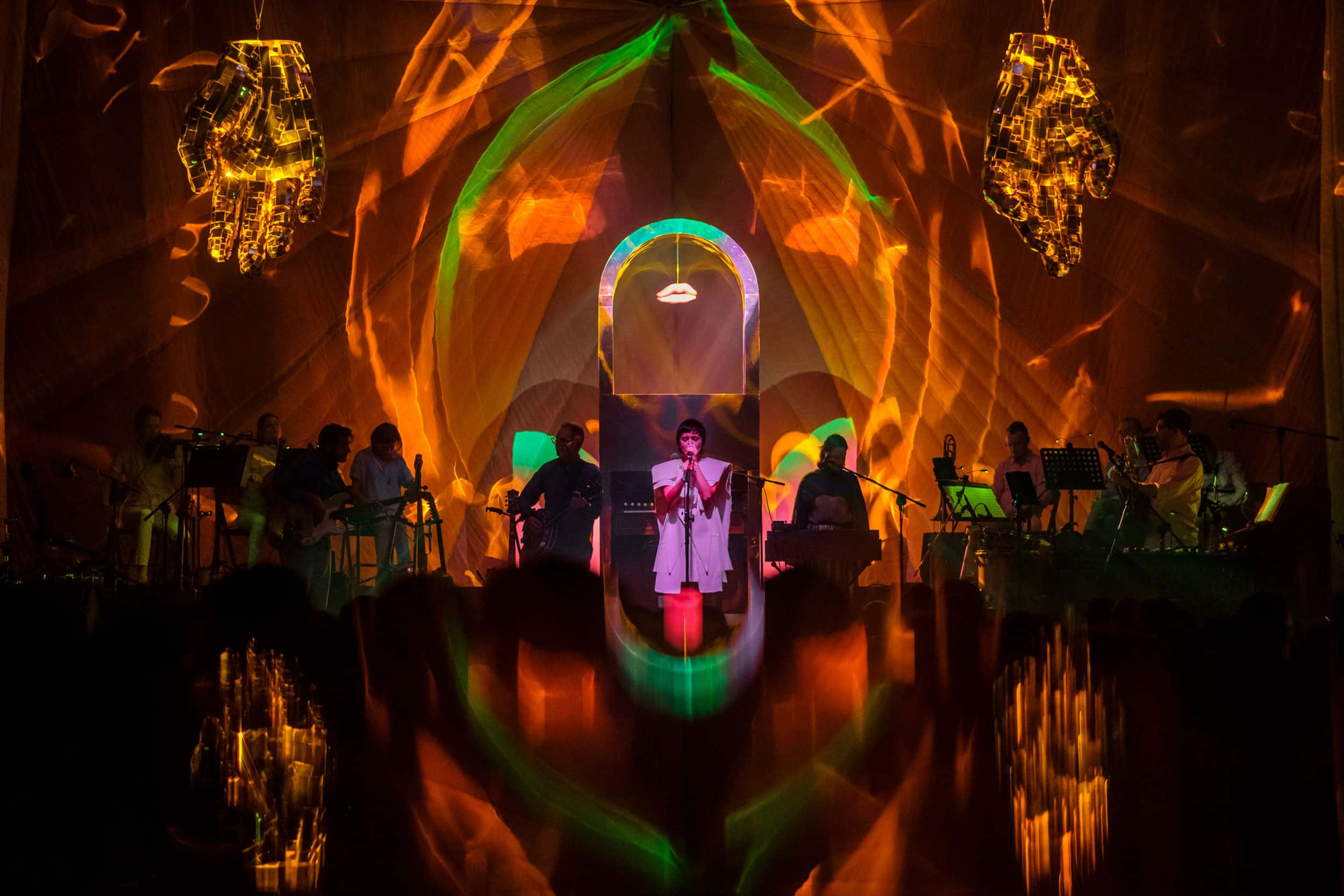
Brodka, photo: M. Murawski, ishootmusic, 2019
DB: You often collaborate with visual artists on your music videos. The end result of these joint projects is quite astonishing. How did it all start? What draws you to this type of interdisciplinary collaboration?
B: Many scripts of my music videos have been inspired by the works of visual artists. There was this project with Red Bull that gave me full liberty as far as the selection of collaborating artists was concerned – the dream project, really. So I went ahead and invited Bownik, Aneta Grzeszykowska, Jan Smaga, Janek Simon and Kevin Brey to participate in it. Every single one of them created truly enthralling content. Aneta and Jan dug out their bathroom series, edited the pictures with the stop-motion technique and used the punk song “My name is youth” as the soundtrack; Bownik told the story about light and music, very beautiful and minimalistic. Pop and gallery art tend to clash, yet we managed to bring them together. I hope that my new album will award me more opportunities for engaging in these sorts of projects.
DB: Interdisciplinary activity seems also capable of expanding the potential of language. As an artist, you convey your message through the linguistic medium. How do you approach this “mixture”? Do you treat it as yet another tool/working method or perhaps illustration of an eclectic combination of the sum of all of our parts (inspirations, books we’ve read, films, cultural background etc.)?
B: For me, this mixture is deeply organic. I guess you could say it’s what defines me as an artist. My music always goes hand in hand with the image. Still, genuine creativity seems incredibly rare nowadays considering the influx of brand-new content posted on Instagram or Pinterest every other second, people “borrowing” the works of others and posing as original authors with impunity. I can’t help but to feel that music videos from the pre-social media age were much more interesting and uncompromising. Today, an artist (or a musician) can present their work to an audience outside any gallery. It’s a blessing and a curse.
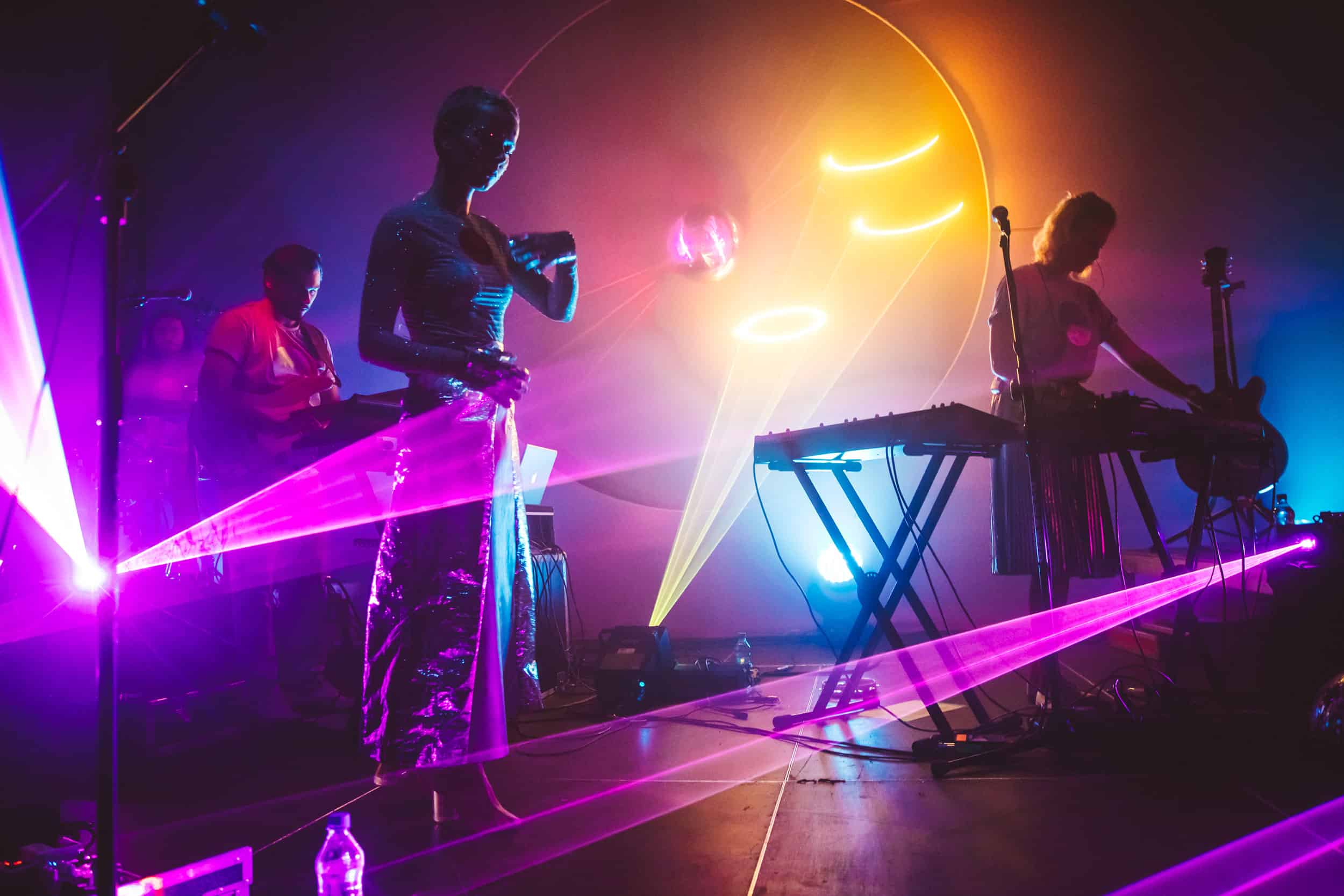
Brodka, photo: M. Murawski, ishootmusic, 2017
DB: For a while, you used the motifs of a hand and eye. Geometric figures, bright color and form compositions with a punk edge which evoke the aesthetic of the TV-shows and theatre plays from the 1970s and 1980s…where does your inspiration come from?
B: My inspiration comes from the unexpected, random moments. Pieces of information, images and sounds stored somewhere inside our own minds tend to coalesce into this one idea. It was the case with the eye on the horizon created especially for Off Festival that emerged as a direct result of a chain of events. The design was so spectacular that I decided to immortalize Ola’s piece (Aleksandra Wasilkowska: editor’s note) on celluloid since I happened to be working on the music video for my new single around that time. I started watching an abundance of TV appearances of the artists from the 1960s and 1970s when TV-shows used to include music breaks, such as Tina Turner or David Bowie and Cher. It was the symmetry and simplicity of stage design along with lighting that has always captured my attention. Everything seemed very theatrical. Juxtaposed against “The Holy Mountain” by Jodorovsky, the stage design of my music video emulated a church altar a little bit. Multiplied motif of an eye gave a psychedelic impression. And that’s how the video for “Up in the hill” came about.
DB: Your affinity with art and culture is not just based on your work, but also an active involvement in civic initiatives. I recall your participation in an excellent image campaign of the National Museum in Warsaw titled “A Ty co zobaczysz?” [“What will you see?”]. The message of the campaign was that everyone could find something fascinating at the museum regardless of their area of interest, age and occupation. And what kind of art do you seek out personally?
B: The one that speaks to my sensibility. I believe it’s the only right answer.
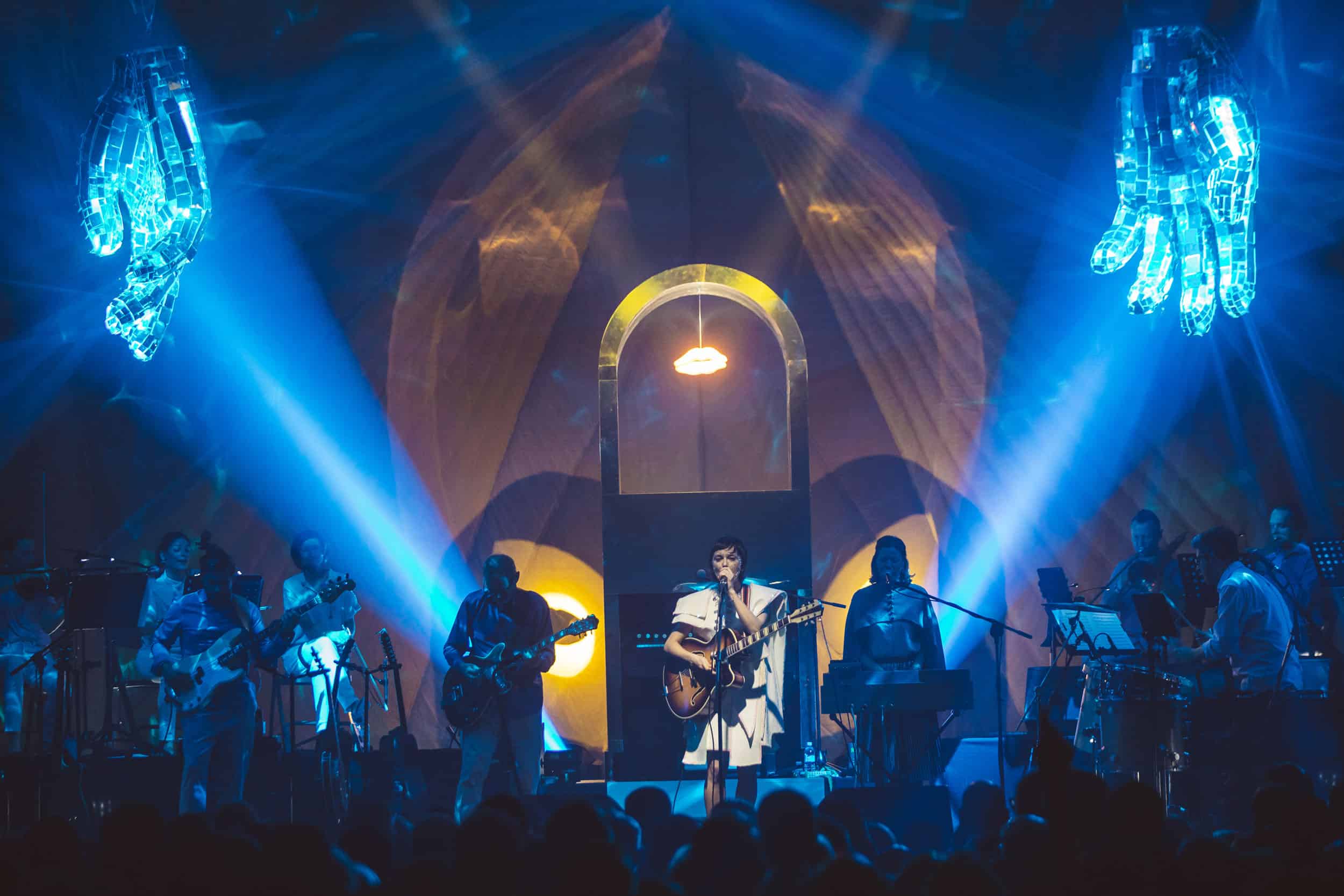
Brodka, photo: M. Murawski, ishootmusic, 2019
DB: I know you collect art. Could you please tell us about the piece your first bought? Do you build your collection around a certain motif or rely on your own emotions and tase? Lastly, where do you purchase the artworks – is it directly from the artists or galleries and auctions?
B: The initial piece I bought was Bownik’s “Krata” [“Grid”]. I pretty much knew I had to own it after five minutes spent in the art gallery. The majority of my collection includes the works of Polish artists, usually photographs. I buy them at auctions, at galleries, as well as directly. Some of them I acquire in the process of an artistic exchange; for instance I wrote a track for the TV-show by Olaf Brzeski and he gave me a sculpture. My collection keeps growing. I’m on a constant mission to discover captivating works on canvas. I hope to find some during the Allegro Prize Competition.
DB: What kind of works and features will you focus on as a jury member of Allegro Prize?
B: I will allow my own intuition to guide me since I’m an art enthusiast with no educational background in this field. Be it with music composition or the selection of finalists, I will just go with my gut (laughs).
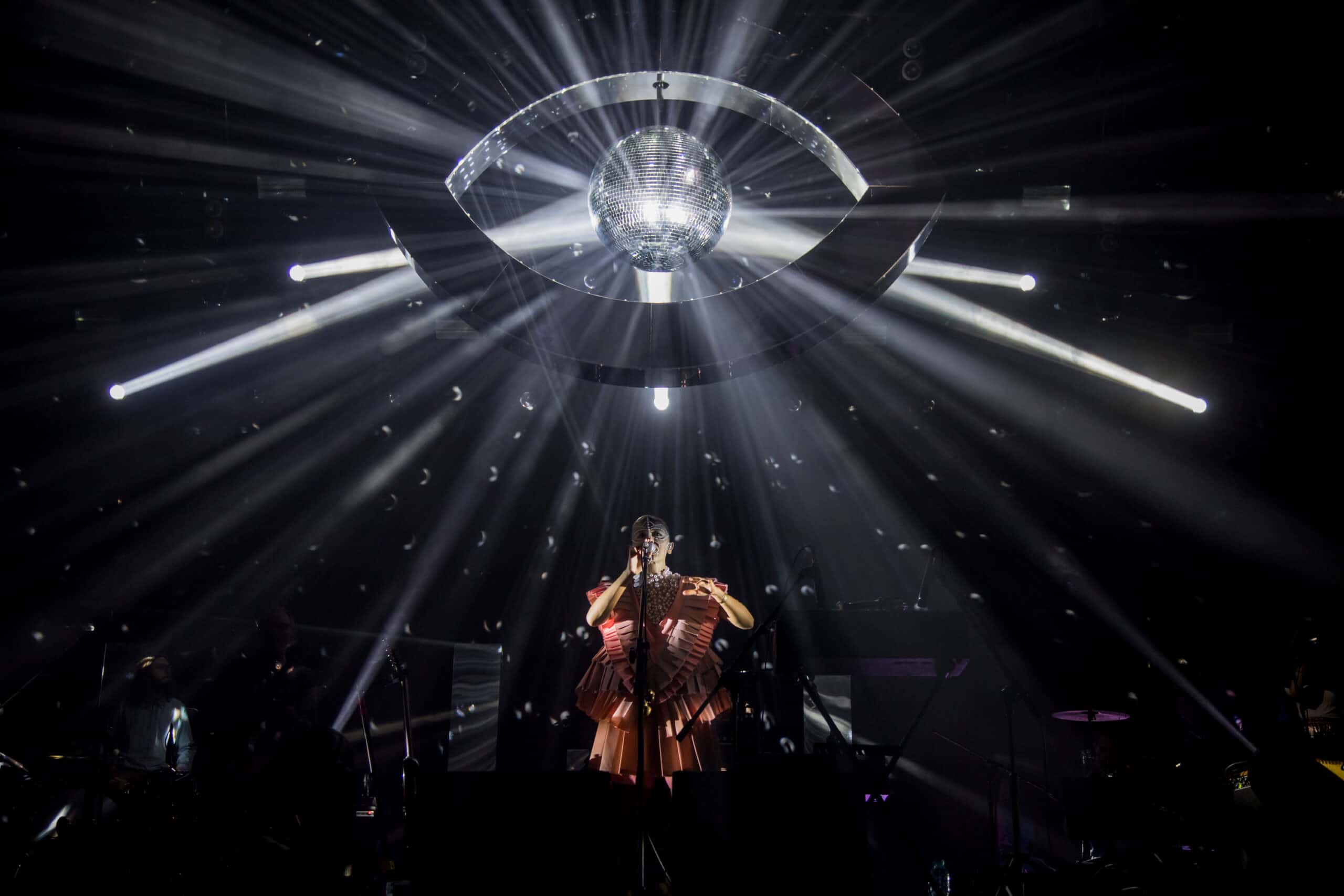
Brodka, photo: M. Murawski, Alter Art, 2017
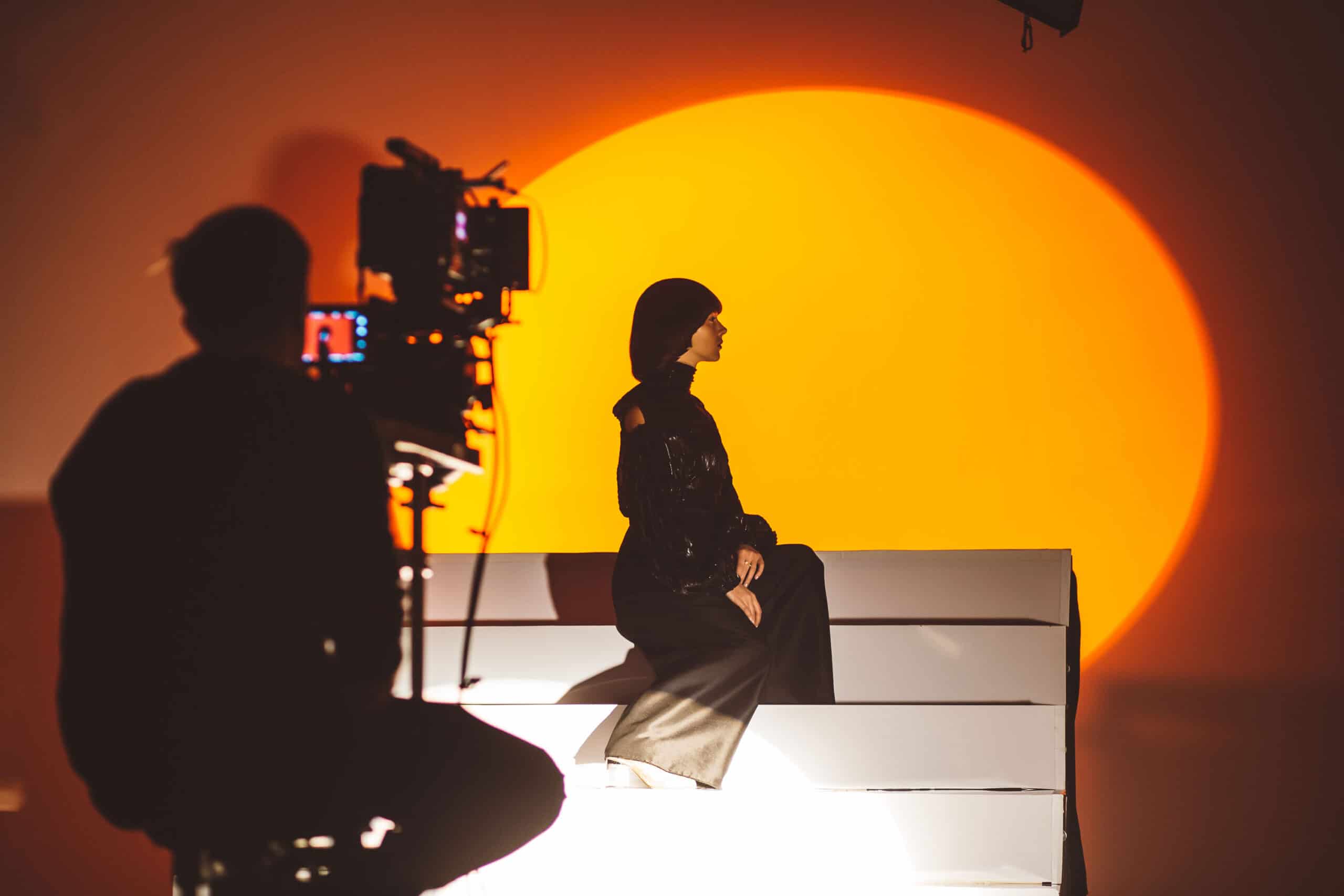
Brodka, photo: M. Murawski, Red Bull Content Pool, 18.11.2016









